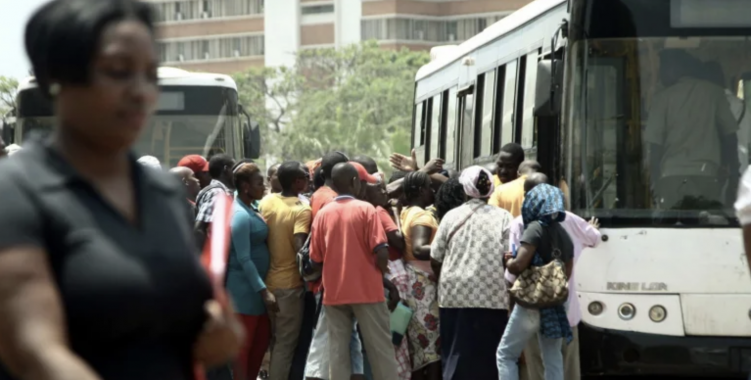The measure is expressed in a study on the assessment of the competitive profile of public policies in the Angolan land transport subsector, prepared by ARC, to which Lusa had access this Monday.
The study, completed last August and now made public, analyzed 38 legal diplomas in force, of which five present normative provisions with competition implications capable of "negatively impacting the regular functioning of the market", it states.
The "competitive restrictions" identified include, in particular, the rules on the requirement for maximum quantities of vehicles per company, the limitation on the holding of share capital exceeding 50 percent by foreign citizens, the exclusivity regime in the provision of public transportation.
The exercise of the functions of market operator and railway infrastructure manager, the existence of market access limitations, as well as preference rules for licensing purposes are also among the "competitive restrictions" identified.
In addition to the rules with a competitive impact, ARC points out that "the current share capital structure of ENBI, S.A [Empresa Nacional de Bilhética Integrada] has the potential to limit the rules for promoting and defending competition, taking into account that one of the members of the ticketing system, in this case TCUL [Empresa Pública de Transportes Colectivos e Urbano de Luanda] is both operator and shareholder of said company".
In light of the analysis developed within the scope of the Public Policy Competition Profile Assessment Program (PAPP), aiming to identify public policies that may be harmful to the rules for promoting and defending competition, ARC recommends the revocation of several articles that make up the legislative framework for the sector.
Among the proposed revocations are articles of the presidential decree approving the Regular Passenger Road Transport Regulation (RTRRP), with regard to the holding of financial capacity to access the national regular transport market, "taking into account the negative effects that said requirement has on healthy competition", states ARC.
The requirement regarding financial capacity results from the provisions of the RTRRP and provides, as a condition for access to the market, that companies have at least one vehicle, and in these situations, the minimum share capital to be subscribed is 5 million kwanzas, remember.
The competition regulatory entity also highlights that, in situations where a given operator wants to add more vehicles to its fleet, it must previously increase the existing share capital by the value of 3 million kwanzas for each vehicle added.
For ARC, the conditions resulting from the aforementioned standard "have a clear and significant impact" on competition, and may objectively constitute a barrier to the entry and expansion of companies wishing to operate in the land transport segment.
It is also recommended to revoke articles of the presidential decree that approves the Occasional Passenger Road Transport Regulation, on the licensing of the activity, "because, on the one hand, it is an activity with mass access for years and without major difficulties in licensing and, on the other, it is a practice considered discriminatory".
In the study, completed last August and published on October 27th, ARC also defends the revocation of articles of the presidential decree that approves the Regulation on Road Transport of Goods, on the licensing of the activity, arguing that they "limit" the companies' growth capacity and competition between them.
The entity defends the alignment of normative content with private investment policies and, in general, with the principles of promotion and defense of competition.
The study concludes that there is a "great need" for the Ministry of Transport and the sectoral regulatory entity, the National Land Transport Agency, to review some public policies of a regulatory nature in force in the subsector.
The Competition Regulatory Authority is the public body, assigned to the Ministry of Finance, which is responsible for ensuring compliance with the rules for promoting and defending competition in the public, private, cooperative and associative sectors.







